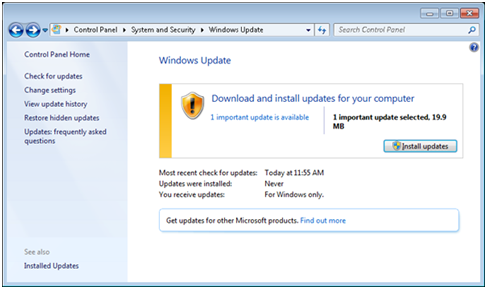First, I’d like to say how much I enjoy Seogdk and all its valuable information. I particularly recommend this article on making your website friendly to both search engines and users. It’s an honor to guest post here!
Hackers are contemporary bank robbers, especially if you’re a person who does business online. They come into your space, armed to the teeth with their tactics and internet knowledge, and they make demands and threaten to hurt you and your business. But with help from a little bit of common sense and a whole lot of sensible advice, you can make sure that your website remains protected from malicious hackers!
Make a Secure Password
Just like having a good lock on a sturdy door is an effective way to prevent thieves from entering a building, a secure password is the first step to preventing unwanted access by hackers. A strong password usually consists of a mix of letters, numerals, and special characters, and ideally includes no repetitions. Secure passwords are usually difficult to guess and may appear random. However, hackers may still use a dictionary attack or a similar approach to try to breach the security in place.
The most important feature of a secure password is that it changes often. Also, don’t use the same password for your email, bank accounts, databases, and/or website servers, or hackers who crack one will have access to the others. Have a variety of passwords for all of these different accounts. This makes it harder for hackers to gain total access to all of your websites and information.
Keep Your Software Updated
While this may seem like a no-brainer, software updates are crucial for website security. Hackers are always producing new software and techniques, which means that you should always be ready to deal with whatever they bring. The software on your computer, as well as any software related to your website, should be updated as often as possible.
There are a couple ways to ensure that your software is updated on time. First, you can set up automatic recurring updates for your operating system. This means that your computer will check for new updates as often as you want it to, and it will do this automatically. As for individual programs, there are tools available online that will check if the rest of your software is using the most current version if you are concerned that you may have missed an update.
Use a VPN to Keep Your Information Private
VPNs (Virtual Private Networks) are programs that keep your internet browsing and input totally private. VPNs are also useful for changing your virtual location to access sites that may be blocked in your region. In terms of website security, VPNs keep important information, such as passwords and server access points, out of the hands of hackers by encrypting every bit of data that is sent through your connection to the internet. While some VPNs may detract from your speed, there are several fast VPNs that are designed to handle a large volume of information and input.
Don’t Give Away Too Much Information in Your Error Messages
Error messages are often overlooked by website owners, but they are a wealth of security information for hackers. Every time that you have a problem with a password or other security issue, you are prompted to send an error message. You should be very vague in these error messages so that hackers can’t glean any information about your website and security measures from your message.
When writing an error message, it’s important to never ever mention your passwords or other security features that you have in place. In other words, don’t say whether the username or the password is incorrect in the error message. If you do, then the hacker will know that they have at least one piece of login information correct. While this may seem a bit like a no-brainer, people often forget that even their error messages exist in a space that is accessible to hackers.
Run a Website Security Check
After you’ve taken some extra security measures for your website, put your methods to the test by running a website security test. These tests are offered by several companies, and they are not very expensive. These checks will let you see where the weak spots are in your defense, and how to patch up any holes in your security. Often these website security check programs will provide tips for adding security to your website as well.
While hackers can pose a serious threat to the well-being of your website, many of their tactics can be prevented or mitigated by applying these simple security tips!

















No comments:
Post a Comment